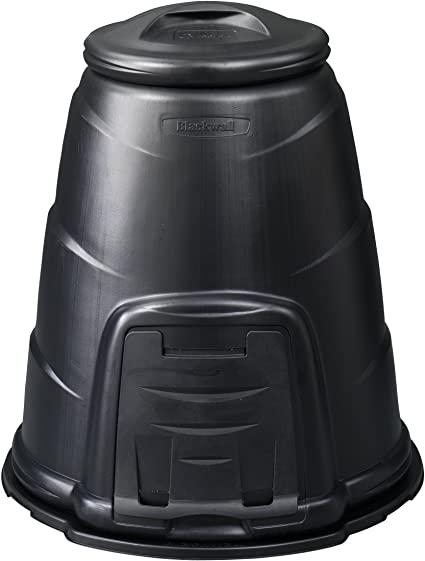Composting at home is an easy, cheap and environmentally friendly way to manage your garden waste. It also provides you with free nutrient rich compost you can use in your garden.
Composting
What is home composting?
How to get started with home composting
You can buy a discounted 220 litre compost bin made from 100% recycled plastic for just £25.
The home composter has the following features:
- Capacity: 220L capacity
- Colour: black
- Size: 740mm diameter and height 900mm
- Design: includes a hatch at the bottom for easy access to your compost
- Material: made from 100% post-consumer recycled material
- Supplier credentials: the supplier indicates through the Carbon Trust that its carbon footprint is 9kgCo2e
You’ll also have access to a free e-learning course to help you make the most of your home composter.
Other compost bins
To buy a wider range of compost bins and accessories, visit Get Composting. Enter your postcode into the Get Composting website to buy wormeries, bokashi bins, water butts and more.
You will be entering into a direct relationship with Get Composting and any operational issues over damaged goods, non-supplies etc are not issues to be resolved by the council. View Get Composting’s privacy policy by visiting the Get Composting website.
Benefits of composting
Composting is beneficial to you, the council, and the environment:
- saves you money on buying compost
- reduces plastic packaging and car miles when purchasing compost
- limits the amount of peat used, a natural resource in decline
- provides a habitat for insects and creates a food resource for hedgehogs and birds
- feeds plants and improves soil health
How home composting works
Compost is easy to make and use. Aim for a good mix of both ‘green’ and ‘brown’ materials:
| Green materials | Brown materials |
|---|---|
|
|
Don't put dog poo, cat litter, cooked food, bones, plastic packaging, or coal ash in your compost bin.
A good composting environment needs four things:
- air: oxygen for aerobic decomposition
- water: essential to live
- shelter: protection from the elements and provide a home
- warmth: the warmer microorganisms are, the more they will feed and reproduce
It will take around a year for your compost to be ready to use.
It will be dark brown and slightly moist with a crumbly texture and smell earthy. It may not look like shop bought compost, but it is good to use. You can sift out larger bits and put them back in your compost bin if they need a bit longer to break down.
Other support
Free online training course
Learn more about composting with our free online course. Provided by Garden Organic, the course is packed with information to help you get the most out of composting.
The course has five modules that you can select, from basics to in-depth knowledge, including videos and quizzes.
Each section lasts 10 to 20 minutes. You can come back to the course at any time so it doesn't have to be completed at once.
To sign up:
- click on the button below
- select guest access
- sign in using guest access with the password NSComposting21
Contact the master composters
Master composters are volunteers who spend time promoting composting in their local community. The master composters may be able to help you by:
- giving talks to local groups
- holding school workshops
- attending your event with a compost education stall
- answering your questions about composting
Become a master composter
We always welcome new volunteers. Click below to learn more.


